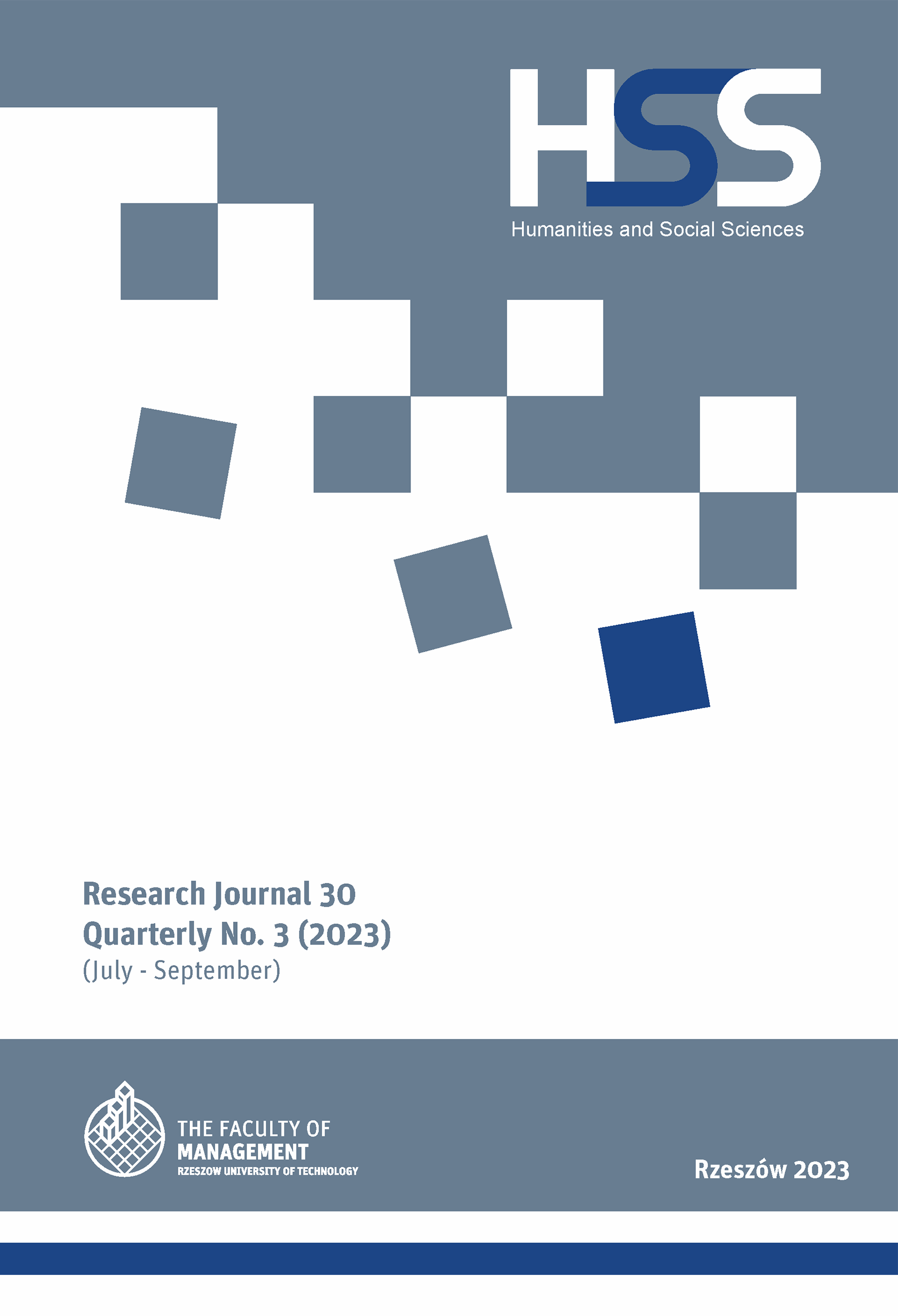Abstract
This article analyses the importance of consequence and non-consequence as conditions for effective management. In conditions of continuous and imminent change taking place both within companies and in their environment (described by the VUCA and BANI models), the role of consequence in management, understood as achieving one’s goal(s), is also changing. Given the tendency towards the atrophy of consequence, increasing chaos, and the appearance of various types of paradox, there is a need to “be non-consequential”, in particular in the strategic dimension of management. The results of a survey on Polish managers’ perceptions of consequence and non-consequence are used to exemplify the theoretical considerations. The results indicate a “deep-rooted” tendency to maintain consequence within the traditional approach to management. This points to a need to increase the openness of Polish managers to non-consequence, which is desirable in the conditions of a dynamically changing reality.
References
Ariely, D. (2018). Potęga irracjonalności. Ukryte siły, które wpływają na nasze decyzje. Sopot: Wydawnictwo Smak Słowa.
Cascio, J. (2020). Facing the Age of Chaos [Access: 16.12.2022]. Access on the internet: https://medium.com/@cascio/facing-the-age-of-chaos-b00687b1f51d.
Cialdini, R.B. (2009). Wywieranie wpływu na ludzi. Teoria i praktyka. Gdańsk: Gdańskie Wydawnictwo Psychologiczne.
Collins, J., Porras, J.I. (2019). Wizjonerskie organizacje. Skuteczne praktyki najlepszych z najlepszych. Warszawa: MT Biznes.
Duckworth, A. (2016). Upór. Potęga pasji i wytrwałości. Łódź: Galaktyka.
Euchner, J. (2013). Navigating the VUCA World; An Interview with Bob Johansen. “Research Technology Managment”, t. 56, No. 1 (Jan /Feb).
Grabmeier, S. (2020). BANI versus VUCA: a new acronym to describe the world [Access: 21.10.2022]. Access on the internet: https://stephangrabmeier.de/bani-versus-vuca/.
Grabowski, W., Naumiuk, M., Rubin, J. (2019). Zwinnologia. Innowacyjne podejście do zarządzania zmianą. Warszawa: MT Biznes.
Hamel, G., Breen, B. (2008). Zarządzanie jutra. Lublin: Wydawnictwo Red Horse.
https://app.santorski.pl/bani-jak-odnajdywac-sie-w-chaotycznymswiecie/.
https://blog.learnlife.com/learn-unlearn-relearn.
https://zmiana.edu.pl/vuca-jest-juz-do-bani-czyli-w-poszukiwaniu-odpowiedzi/.
https://mfiles.pl/pl/index.php/Analiza_PEST.
Johansen, B. (2012). Leaders Make the Future. Ten new leadership skills for uncertain. San Francisco: Berrett-Koehler Publishers.
Krzeszewska, R. (2022). Ambidexterity w polskiej terminologii z zakresu zarządzania. “E-mentor”, No. 3 (95) [Access: 30.01.2023]. Access on the internet: https://www.e-mentor.edu.pl/artykul/index/numer/95/id/1571.
Leja, K. (2013). Paradoksy w zarządzaniu organizacją. Wejście „do” czy wyjście „z” labiryntu. “Przedsiębiorczość i Zarządzanie”, t. XIV, z. 13, cz. I.
Lewis, M.W. (2000). Exploring Paradox. Toward a more comprehensive guide. “The Academy of Managment Review”, t. 25, No. 4.
Nestorowicz, P. (2001). Organizacja na krawędzi chaosu. Kraków: Wydawnictwo Profesjonalnej Szkoły Biznesu.
Merriman, K.K. (2017). Leadership and Perseverance, Marques, J., Dhman, S. (eds), Leadership Today. Switzerland: Springer International Publishing.
Piątkowska, A. (2021). Przywództwo w świecie VUCA. Gliwice: Onepress.
Polowczyk, J. (2014). Zarządzanie strategiczne jako wielowymiarowa przestrzeń paradoksów. “Studia Oeconomica Posnaniensia”, Vol. 2, No. 2.
Popowicz, K. (2004). Racjonalność w zarządzaniu przyszłością. “Organizacja i Kierowanie”, No. 4.
Robbins, S.P., De Cenzo, D.A. (2019). Podstawy zarządzania. Warszawa: PWE.
Smith, W.K., Lewis, M.W., Tushman, M. L. (2016). Both/and Leaderhip. “Harvard Business Review”, Vol. 94, No. 5.
Szaban, J. (2012). Intuicja i racjonalność w zarządzaniu. “Współczesne Zarządzanie”, No. 4.
Sztabiński, P.B., Sawiński, Z., Sztabiński, F. (2005). Fieldwork jest sztuką. Warszawa: Instytut Filozofii i Socjologii PAN.
Świerżewski, Ł. (2012). Nowa normalność w świecie biznesu. “Harvard Business Review Polska”, No. 7–8.
Taskan, B., Junca-Silva, A., Caetano, A. (2022). Clarifying the conceptual map of VUCA. A systematic review. „International Journal of Organizational Analysis”, Vol. 30, No. 7.
Tushman, M.L., O’Reilly, Ch. A. (2004). The Ambidextious Orgaization. “Harvard Business Review”,Vol. 82, No. 4.


